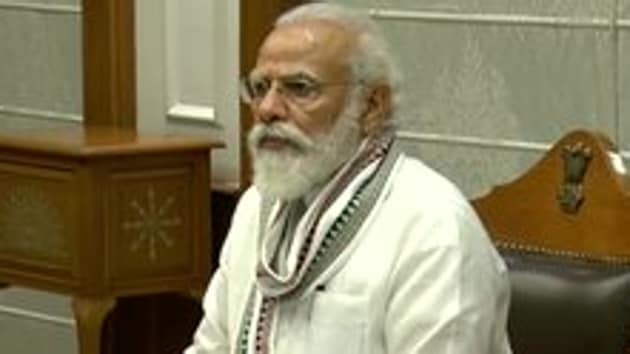PM Modi reviews plan to enhance Kedarnath’s divinity, make 16-km trek comfortable
The review meet also discussed the need to ensure that pilgrims headed to the holy shrine, considered to be the abode of Lord Shiva, get all facilities on the Gaurikund-Kedarnath route.
Prime Minister Narendra Modi has reviewed the development work going on in Kedarnath dham through video conferencing, while focusing on furthering the divinity of the Kedarnath temple and Hindu spiritual guru Adi Shankaracharya’s resting place nearby through maintenance of cleanliness at the holy pilgrimages and extensive development, the Prime Minister’s Office (PMO) said in a statement.

The review meet also discussed the need to ensure that pilgrims headed to the holy shrine, considered to be the abode of Lord Shiva, get all facilities on the Gaurikund-Kedarnath route. The project to use technology to showcase the historical and cultural significance of the pilgrimage also came up for discussion.
This was the second such review chaired by the Prime Minister in the last two months. The Kedarnath pilgrimage is considered to be one of the toughest among the four religious sites that form part of the Uttarakhand Char Dham pilgrimage circuit comprising Yamunotri, Gangotri, Kedarnath and Badrinath.
The journey to Badrinath, nestled in the Himalayas, involves a 16-km trek through snow-clad mountains. It is Prime Minister Modi’s one of the most regularly frequented destinations. He had even spent a night in one of the caves near the Kedarnath temple after the general elections in 2019.
The development project also involves developing more such caves for the purpose of meditation along with development of ghats.
Another Central project to improve and develop 889 km of national highway linking the famed circuit at a cost of over ₹11,700 crore is also in the progress. It was originally scheduled to get completed by March 2020.
Earlier today, while addressing the digital conclave on the occasion of World Youth Skills Day, the prime minister said India has the potential to capitalise the skilling opportunities, which in-turn can supplement the global demand.
The Prime Minister stressed on the need to map this demand and align Indian standards with those of other countries.






